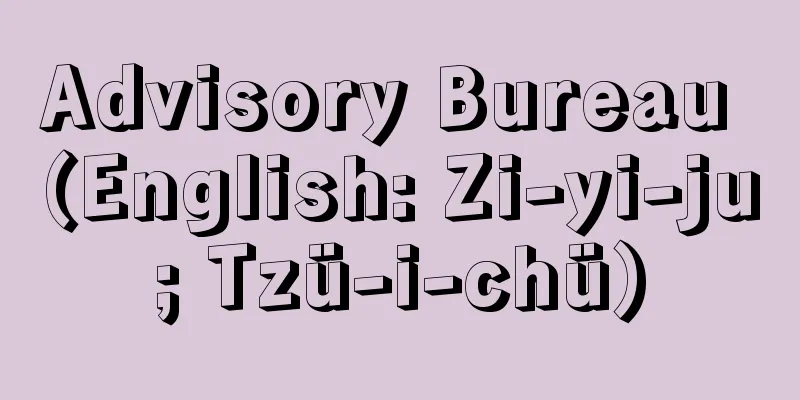Stock issues to shareholder

|
A type of capital increase in which a corporation raises funds by issuing new shares. Other forms of capital increase include public offerings and third-party allotments. Based on the principle of shareholder equality, allotments give existing shareholders the right to subscribe to new shares in proportion to the number of shares they own. As a result, in principle, the shareholder composition after the capital increase will not change compared to before the capital increase, so this is a suitable form for companies where management considers the existing shareholder composition to be desirable and wants to raise funds. Another benefit for existing shareholders is that their shareholding ratios will not change significantly. On the other hand, since the investor base is limited to existing shareholders, it is not suitable for raising large amounts of funds. Shareholders who receive an allocation of new shares are given the right to subscribe to the new shares for a fee, but are under no obligation to subscribe to the new shares, and if they do not apply by the deadline, their pre-emption rights will expire. Existing shareholders who do not want to reduce their investment can exercise their pre-emption rights, while shareholders who do not have the funds to purchase new shares or do not want to increase the number of shares they hold can waive their rights. In addition, because a shareholder allotment is targeted at existing shareholders, even if the payment price for the new shares is set differently from the market price, it will not harm the economic interests of existing shareholders, so it is common to issue the new shares at a price lower than the market price. This enforces payment on existing shareholders, encouraging them to exercise their subscription rights, making it easier for the issuing company to secure the planned amount of funds. One form of shareholder allotment is the "rights issue." This is a method that is well established in the UK and other countries, and in Japan it is also called the "free allotment of stock acquisition rights." It is a mechanism in which stock acquisition rights are allotted to existing shareholders free of charge at a price lower than the market price, and in this respect it falls within the framework of the conventional system. However, in a rights issue, stock acquisition rights can be sold. This allows existing shareholders who do not want to subscribe to new shares to make up for losses associated with the capital increase by converting their rights into cash. Meanwhile, the sold stock acquisition rights are purchased and resold by securities companies, and if new acquirers of the stock acquisition rights exercise them, the issuing company will achieve its fund-raising plan on the planned scale. Rights issues were possible under the previous system, but deregulation by the Financial Services Agency in 2011 made it possible to respond more flexibly. After the collapse of the bubble economy, the Japanese stock market saw an end to the sustained upward trend in stock prices, and as a result, there were many cases where companies' capital increases lowered the value of their stocks, which was one of the factors that led investors to turn away from the stock market. The establishment of a system for rights issues can be seen as one of the measures to address this issue. [Gen Takahashi March 19, 2015] [Reference items] | | | | | |Source: Shogakukan Encyclopedia Nipponica About Encyclopedia Nipponica Information | Legend |
|
株式会社が新株の発行により資金調達を行う増資形態の一種。ほかの増資形態には公募増資、第三者割当増資がある。株主割当増資は、株主平等の原則に基づき、既存株主に対して、所有株式数に応じた新株引受権を与えるものである。このため、原則として増資後の株主構成は増資前に比べて変化しないから、経営者が既存の株主構成を望ましい姿であると評価し、かつ資金調達を実施したい場合にはふさわしい形態であるといえる。また、既存株主にとっては、株式持分(もちぶん)の割合が大きくは変化しないというメリットがある。その半面、投資家層が既存株主に限定されるため、大規模な資金調達には適していない。 新株の割当てを受けた株主は、有償で新株発行に応じる権利を与えられるが、新株発行を引き受ける義務はなく、期日までに申し込まなければ新株引受権は失効する。出資持分の低下を望まない既存株主は新株引受権を行使すればよいし、購入資金をもたない株主や保有株数を増加させたくない株主は権利を放棄すればよい。 また、株主割当増資では、既存株主が対象となるため、新株への払込み価格の設定が時価と異なっても既存株主の経済的利益を害することがないことから、時価よりも低い価格で発行することが普通である。これにより、既存株主には払込み強制力が発揮され、新株引受権の行使を促すこととなり、発行会社は予定する資金調達額を確保しやすくなるという効果がある。 なお、株主割当増資の形態の一つに「ライツ・イシューrights issue」がある。これはイギリスなどで定着している手法であり、日本では「新株予約権無償割当」ともよばれる。既存株主に時価よりも低い価格で新株予約権を無償で割り当てる仕組みであり、この点では在来の制度の枠組みに包摂される。 ただ、ライツ・イシューでは、新株予約権を売却することが可能とされる。これにより、新株引受けに応じたくない既存株主には、権利を換金することで増資に伴う損失を埋める道が開かれる。一方、売却された新株予約権は証券会社が買い取り転売するが、新たな新株予約権の取得者が権利行使をすれば、発行会社は資金調達計画が予定通りの規模で達成されることとなる。 ライツ・イシューは、従来の制度の下でも可能な手法ではあったが、2011年(平成23)に金融庁が規制緩和を実施したことで、より柔軟な対応が可能になった。バブル経済崩壊後の日本の株式市場は、それまでの持続的な株価上昇傾向に終止符を打ち、その結果企業の増資が株式価値を低下させるケースも少なくなく、投資家の株式市場離れを招く一因となっていた。ライツ・イシューに関する制度の整備は、そうした面への対応策の一つととらえることができる。 [高橋 元 2015年3月19日] [参照項目] | | | | | |出典 小学館 日本大百科全書(ニッポニカ)日本大百科全書(ニッポニカ)について 情報 | 凡例 |
<<: Shareholders' allotment interim issue of new shares - Kabunushiwariatechukanhakkozoushi
>>: Shareholders' allotment - Kabunushiwariate
Recommend
Gold Purchasing Rules
...A law (promulgated in 1953) that allowed the g...
Ikeda charcoal
〘Noun〙 High-quality charcoal burned in Nose Distri...
Christian Heinrich Hohmann
1811‐61 German composer and music educator. He tau...
Historical drama
Also called a historical drama. A drama based on h...
Fabian (English spelling)
A Japanese Jesuit priest from the Azuchi-Momoyama ...
IS・LM Analysis
...Total demand is composed of consumption, inves...
Gurlitt, W.
…However, what cannot be overlooked at the same t...
Ossetian - Ossetian
A language belonging to the Iranian branch of the ...
Breysig, JA
...The panopticon, a surveillance system invented...
"Annotations of the Chinese Book" - Kanjochu
…However, it is undoubtedly the primary source of...
Ameloblasts
Cells that produce tooth enamel. Source: Asakura P...
Sherlock Holmes
Holmes is an amateur detective who first appeared ...
Turf maze
...Today, remains of these can be seen in places ...
Polar night jet stream
…In recent years, as observations have improved, ...
Dietmar
…German clergyman and chronicler. Also known as D...









